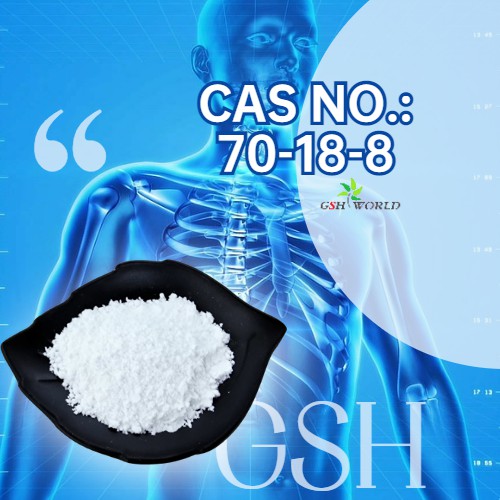Experts tell how glutathione fights cataracts, Parkinson’s disease
From the medical point of view, aging is a progressive function decline, and a cumulative sensitivity to pathogenic factors, so that the autoimmune ability is weakened, and thus the efficiency of resistance to disease is relatively reduced, the culprit is free radicals.
Free radicals flow from cell to cell, invade the human body, disintegrate tissue function, and leave a large amount of peroxide.
Therefore, during the aging process, it is common for the human body to consume a large amount of glutathione.
Glutathione is a common component in human cells and the most abundant thiol reducing agent in mammalian tissues.
However, the data from the study show that aging is accelerated with the decrease of glutathione content. The results showed that the GSH content in the liver, kidney, heart and brain of old mice was 30%, 34%, 20% and 30% lower than that of young mice, respectively.
The glutathione content of the red blood cells of both old mice and the older people significantly reduced.
There have also been reports of reduced GSH activity (i.e. the ability to reduce oxides) in older people.
These examples all suggest that decreased glutathione levels are related to the causes of aging.

Aging is the inevitable result of the human body’s struggle with time, but this time factor determined by the physiological stability, not by the length of natural time.
In other words, the duration of aging is proportional to the degree of antioxidant in the body, and the more sound the antioxidant mechanism, the duration of aging naturally delayed.
On the contrary, the weaker the anti-oxidation mechanism, the aging time will come in advance regardless of face.
Glutathione is a powerful antioxidant that prevents aging diseases caused by oxidative damage.
A classic example of this is cataract prevention. Cataract a disease of the lens of the eye, which also caused by oxidative damage.
Ninety percent of the protein SH group in the ocular crystal of cataract patients oxidized,
and supplementing the glutathione content in the crystal can effectively maintain the reduced state of the protein SH group in the crystal, thus achieving the effect of delaying cataract lesions.
Parkinson’s disease also a disease associated with aging oxidative damage. The neurotransmitter dopamine in human body mainly produces peroxide after interaction with monoamine oxidase, thus causing damage in the body.
Glutathione also inhibits the production of dopamine peroxide.
Therefore, glutathione supplementation can effectively prevent aging diseases such as cataract and Parkinson’s disease.
Except for cataracts and Parkinson’s disease, almost all aging diseases associated with glutathione consumption.
For example, the immune system also loses its effectiveness with aging,
and the main T-lymphocytes lose their ability to respond to external stimuli.
Animal experiments have confirmed that the retardation of the immune response due to aging in mice associated with a decrease in glutathione content in the spleen,
and even non-aging immunodepression associated with a decrease in glutathione content.




